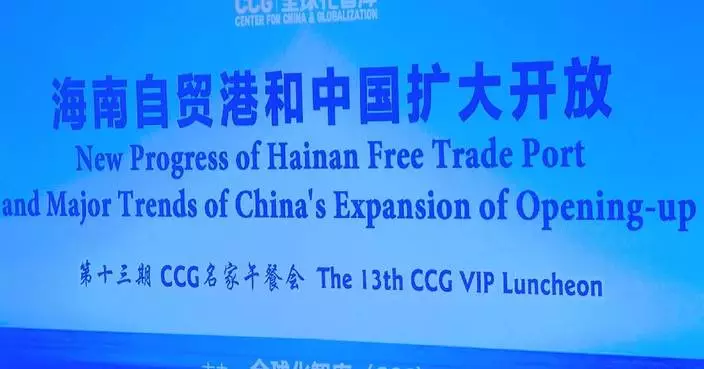A young entrepreneur and e-sports pioneer from China's Macao Special Administrative Region (SAR) has shared his ambition of better integrating the world's largest e-sports market in China into the global landscape.
Mario Ho Yau Kwan, founder and chairman of the digital entertainment firm NIP Group, made history earlier this year by becoming the youngest Nasdaq-listed company founder in Asia at the age of 29, when his NIP Group become the first esports stock from China to go public on the Nasdaq stock exchange back in July.
"I was screaming, so excited. I screamed so hard that my voice went hoarse for a whole week," he said as he recalled the celebrations which accompanied the company's listing.
Ho also noted the significance of this year marking the 25th anniversary of Macao's return to China, and said the historic return has brought huge opportunities to the region, especially for the young generations.
"As a young man born in 1995, I have seen Macao before the return, during the return, and after the return. We can all see that because of its return, Macao has become so much better. For young entrepreneurs, they have got so many new opportunities," he said.
As a mentor at the Macao Youth Development Service Center, Ho often tell young entrepreneurs in Macao to travel to the mainland and see the opportunities brought about by the construction of the Guangdong-Hong Kong-Macao Greater Bay Area -- a major city cluster and vibrant economic region which is home to tens of millions.
"When I'm back in Macao, I often recommend young people in Macao to travel more to the mainland and learn to strive from young people in the mainland. If you are trying to find very good entrepreneurial opportunities in Macao, where the population has just several hundred thousand people, I'm not saying there isn't, but why not try the Greater Bay Area?" Ho said.
Recounting his personal story, Ho said he decided to return back to China to start his businesses after graduating from the Massachusetts Institute of Technology (MIT) in 2016 because he recognized the hige potential which lay in the newly-emerging industries.
"China has a vast market and numerous opportunities. In 2016, I saw rapid growth in many Chinese industries, so I chose the mainland," he said.
Ho first explored augmented reality, artificial intelligence, and game development before he entered the e-sports industry in 2018, when he founded the e-sports organization Victory Five and the Macao E-sports Federation.
A milestone moment for the industry came last year when e-sports where featured as a medal event at the 19th Asian Games in Hangzhou City of east China's Zhejiang Province, where Ho served as the head coach of Macao's e-sports team.
"Last year, we brought our team to the Asian Games. For the first time, Macao e-sports appeared on the largest international sports event it's ever been to," he said.
Ho said he is aiming to make more contributions to the integration of Chinese e-sports into the wider global industry and hopes to use this platform to promote Chinese culture worldwide while doing so.
"More and more Chinese-made cultural products, sci-tech products and even games are winning greater popularity overseas. This vitality is something we couldn't see before. China is the world's largest e-sport market. We hope to promote the integration of Chinese digital sports into the global industry and promote Chinese culture through digital sports, a way that have been recognized and accepted by young people around the world," he said.
Looking forward, Ho said he hopes to see more new success stories being jointly written by the young people from the mainland and Macao.
"As young people from Macao, we can feel the strong support from the motherland. And the return of Macao has brought greater economic, cultural and sci-tech opportunities. Today, Macao has become very prosperous and stable. In the meantime, the young people in Macao now have more stages and opportunities to show their talent. I hope that in the next 25 years, young people from Macao and the mainland can have more exchanges and create more success stories," Ho said.

Young Macao entrepreneur seeks to integrate Chinese e-sports into global industry





















































